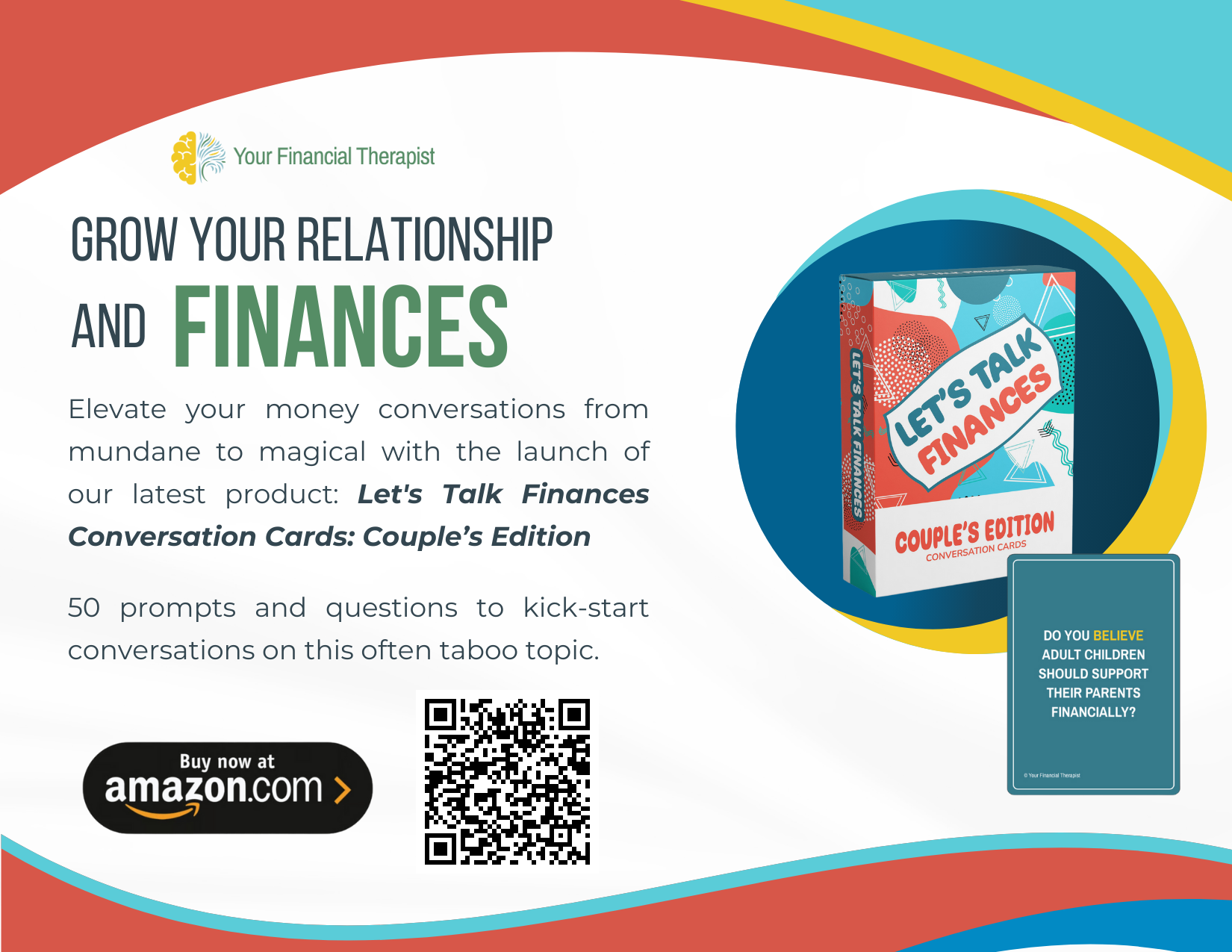Holiday Spending Survival Guide: 10 Ways to Navigate the Festive Season with Less Stress & Debt

It’s no secret that navigating the maze of holiday expenses can be overwhelming. This Holiday Spending Survival Guide will empower you to make smart money moves and embark on a journey towards financial freedom during this joyous time, while still giving your loved ones thoughtful gifts that speak volumes about your care and consideration.
We’ll explore the art of mindful gift-giving, which isn’t about the price tag, but rather the thought, love, and effort that goes into each present, making your holiday season both financially responsible and emotionally rewarding.
We’ll also discuss how to plan ahead, make mindful decisions, and keep your bank account happy during this joyous time.
The best part? You won’t have to compromise on the spirit of giving or celebrating.
1. Understand the Reality of Holiday Spending
Mindful gift-giving starts with awareness. The reality is, when it comes to the holiday shopping season, many people tend to exceed their spending budgets. According to data from The National Retail Federation, American holiday shoppers are expected to shell out an average of over $1,000 on gifts, food, and decorations.
This kind of expenditure isn’t uniform across all demographics, though. Holiday spending statistics say that millennials tend to be some of the biggest spenders during this time. Many even admit they’ve shopped online stores and in-store shopping while under the influence, leading them down a slippery slope towards overspending or buying holiday gifts not initially intended for purchase.
Online Shopping: A Double-edged Sword?
In recent years, online shopping has gained immense popularity due to its convenience and variety offered, especially among younger generations who prefer digital platforms for their holiday purchases. However, this ease could also lead individuals into impulse buying, thereby increasing their overall holiday budget significantly without realizing it.
One subtle way to curb this is by disabling the auto-populate feature for your credit card number on shopping sites. This would require you to get up and physically retrieve your card to input the number manually. This small delay could make you reconsider your purchase or, in some cases, even decide to skip it entirely. It’s a simple tip that could potentially save you from making an impromptu, unnecessary purchase.
It’s important to understand the reality of holiday spending and the potential financial consequences that come with it.
By setting a spending amount, tracking expenses, and being mindful of impulsive purchases, we can make more informed decisions and have a better grasp on our holiday finances. This can help us avoid unnecessary debt and enjoy the holiday season without the added financial stress.
Maintaining Financial Health During Holidays
Keeping your finances in check during these times requires careful planning and disciplined spending habits, which contribute positively not just towards maintaining current financial health, but also setting up good money management practices for future holidays, too. For a lot of people, this starts with creating a budget, which we’ll explore next.
2. Automate Your Holiday Spending
When it comes to automating our spending habits, consistency is the key to saving money. This principle applies even more so during the holiday season.
When you can put aside a set amount each month into your savings account, by December you’ll have funds ready specifically for festivities. No need for last-minute planning or dipping into other areas of your life financially because Christmas came as a surprise (it does happen every year, after all).
This approach to budgeting for the holidays not only saves potential headaches come the New Year, but it also allows room for thoughtful gift-giving within limits rather than panic buying at the eleventh hour. I recommend starting early with your holiday spending budget next year, that way there’s no pressure when the shopping starts again.
The Importance of a Realistic Holiday Budget
Of course, when the holidays arrive, it can be easy to get caught up in the excitement and end up spending more than you initially planned. Creating a realistic budget is the key to staying financially secure during the holiday season and avoiding debt, as well as reducing stress and improving your financial health.
A budget is not just about dodging debt—it can also help lessen financial anxiety during this hectic season which can lead to better overall wellbeing. Trust me—setting up a mindful budget will be an invaluable asset during this busy holiday season.
If you want personalized help with managing your holiday spending effectively, I invite you to book a free call with me, Erika Wasserman, Your Financial Therapist. I’m here to guide you through this process to make sure you sail smoothly through this festive season and beyond.
Related: 9 Ways to Save the Earth and Your Wallet

3. Prioritize Your “Naughty or Nice” List for Mindful Gift-Giving
When it comes to mindful gift-giving, creating and prioritizing your own “Naughty or Nice” shopping list can be incredibly valuable. This isn’t about passing judgment, but more about identifying those who truly matter in our lives. Close family members and dear friends may top this list, whereas distant acquaintances might not make an appearance at all.
For those less close acquaintances, consider spending your time, not your money. Simple gestures like homemade cookies or a heartfelt DIY gift could be an excellent way to show your appreciation without straining your holiday budget.
Another creative and thoughtful way to approach this is by gifting a certificate for a skill you possess. For instance, if you’re a wizard in the kitchen, how about a “private chef for a night” gift certificate? This would not only make for a unique and memorable gift, but also allow you to share your talents with others. It’s a perfect example of a present that costs more in time and effort than in dollars, making it a budget-friendly yet meaningful option.
This strategy helps you keep tabs on holiday spending by allowing you to purchase meaningful gifts for those who matter most, while still spreading a little joy to others in a thoughtful way.
4. Shop Mindfully
Becoming conscious about our shopping choices can drastically impact our finances, too. Ever noticed how some items are actually cheaper post-Black Friday sales?
You can help yourself dodge impulsive purchases by creating wishlists and sticking strictly to them to curb unnecessary expenditure during the holidays. Another way to avoid impulse purchases is by waiting 24 hours before buying anything not listed on your wishlist. Chances are you won’t feel compelled to buy it anymore.
5. Embrace DIY Gifts and Experiences
Higher prices don’t necessarily mean higher value when it comes to presents. A homemade gift, for instance, is a cost-effective alternative that adds a personal touch often missing from items bought from department stores.
In addition, consider giving experience gifts, like cooking classes or concert tickets. These gifts can create lasting memories instead of adding clutter with physical objects. Plus, it can be another great way to save money during the holidays while still forming meaningful connections.
6. Take Advantage of Secret Santa Arrangements and Gift Exchanges
If large family gatherings are part of your festive season tradition, then proposing Secret Santa arrangements or gift exchanges could significantly reduce financial stress and unplanned purchases. By doing this, everyone involved can minimize the number of required purchases, helping everyone save money during this spendy time of year.
There are many different online tools available that can help you effortlessly organize these events. Plus, gift exchanges can add a lot of fun and excitement to the holidays!
7. Choose Volunteering Over Holiday Parties
A unique way to celebrate and give back is by organizing group volunteering activities instead of traditional holiday parties. Opting for a group volunteering activity in lieu of the conventional holiday party can be beneficial not only financially, but also by providing an enriching experience.
You can find various opportunities near you through platforms like VolunteerMatch. Whether it’s serving meals at local shelters or wrapping gifts for children in need, these experiences leave lasting memories while making a positive impact on people’s lives.
Related: Fall in Love with Your Money: Creating a Healthy Financial Bond

8. Use Credit Cards Responsibly During the Holidays
The holiday season can be a whirlwind of expenses. From gifts to gatherings, the costs quickly add up, and it’s easy for credit cards to take center stage in your spending strategy. However, using them without careful planning could lead to unwanted post-holiday debt.
Remember that the value of a gift lies in the thought and sentiment behind it, not just the price tag. When you create and stick to a budget and prioritize meaningful presents over extravagant ones, it becomes a lot easier to manage your spending over the holidays.
By being mindful of your spending and using credit cards responsibly, you can enjoy the holidays without falling into unnecessary debt in the New Year. Your 2024 self will thank you for it!
A Better Approach: Debit Over Credit?
When it comes to managing our festive finances more effectively, one option is swapping out those tempting credit cards for debit cards instead. This helps keep track of spending as transactions come directly from your bank account—an instant reality check every time you swipe.
On the other hand, another alternative that my clients have found useful is creating a cash stash envelope for holiday spending. By allocating a specific amount of cash for the season’s expenses and sticking to using only what is in the envelope, you can avoid overspending. This method provides a tangible way to monitor your budget and can be a powerful tool to curb impulsive purchases. So, this holiday season, consider giving the cash stash strategy a try for a stress-free, budget-friendly celebration.
Mindful Spending Habits With Plastic Money
If you do opt for plastic money, i.e., a credit card, it’s important to ensure there are sufficient funds in your checking account or with an upcoming income source ready at your disposal. This will allow you to pay off the balance right away, avoiding interest charges.
Interestingly, your credit card can also be a source of gifts, thanks to rewards programs. Instead of being lured into unnecessary purchases by these programs, why not use your accumulated credit card points to buy gifts or gift cards? It could even be fun to challenge yourself to buy only gifts with your credit card points. This strategy turns these reward programs into a tool for mindful spending, and not a trap for overspending.
However, remember to stay focused on your mindful budget and your planned purchases rather than the idea of “saving” with rewards. The key is to avoid impulse buying with credit card offers and utilize them strategically for your holiday shopping.
Related: Our Mother’s Impact on Our Financial Mindset, Habits, and Growth

9. Book a Post-Holiday Financial Health Check-up
The holiday season, with all its joy and merriment, often leaves a dent in our financial situation. Once the tinsel is packed away and January rolls around, it’s time to face the music.
When reviewing your finances after the holidays, your first port of call should be your credit card statements. Identify any areas where you may have overspent or could have found items cheaper elsewhere. This will give you insight into what caused any budget blowouts during the festive period and help you prepare better for next year.
At this point, it would also be beneficial to make a note of how much you spent overall during the holiday season. Ask yourself if you’re comfortable with this amount, or if you’d like to spend more or less next season. Write this number down and keep it handy for next year’s planning. It can serve as a reference point when setting up your holiday budget, ensuring that you’re on track with your spending goals.
If debt has piled up post-holidays, don’t stress. Professional help is just a click away!
As Your Financial Therapist, I’m here to guide you in effectively managing debts and creating realistic repayment plans.
Click here to book a free call with me, Erika Wasserman, to explore how I can help you.
Navigating Budgeting Issues After The Holidays
A common issue that crops up after festivities are over is struggling with regular expenses due to depleted savings accounts or inflated credit card balances. The key is to not just focus on paying off these debts, but also to ensure your ongoing bills aren’t neglected.
As Your Financial Therapist, I can work closely with you here, too, helping pinpoint areas for adjustments in your monthly budget until things get back on track financially again. Remember, there’s no shame in needing assistance.
We all hit financial snags sometimes, and I’m here to help you navigate them successfully. Click here to book your free call.
10. Evaluate Past Holiday Expenditures
Significantly improving your future holiday spending habits starts with taking a close look at your past spending. This is your chance to reflect on last season’s financial choices. Where did most of your money go? Was it mostly spent on gifts? Decorations? Food? Traveling to visit family or hosting family?
This evaluation is an excellent opportunity to establish better spending habits for future holidays. After identifying where your expenses primarily went, you can strategize how to allocate your budget more efficiently next year.
For instance, if your largest expense was gifts, you might consider implementing homemade presents or setting a limit on gift spending. If food was a major expenditure, you could plan for potluck dinners or cook at home more frequently to cut down on dining out costs.
By taking these steps, you’re not just cutting costs, but also making more mindful choices about your holiday spending.
The festive season is about cherishing time with loved ones, and you don’t need to overspend to make it memorable. With these tips, you can look forward to a financially stress-free holiday season next year.
FAQs About Holiday Spending
How do I plan my holiday spending?
Create a realistic budget, prioritize your gift list, and consider alternative gifts. Automate savings throughout the year to accumulate funds for the festive season.
What do people spend the most money on during the holidays?
The majority of holiday expenses typically go towards gifts, followed by food and decorations. Travel costs can also be significant if visiting family or friends.
How much money does the average American spend on Christmas?
U.S. consumers usually shell out around $1,000 each Christmas on presents, holiday decorations, and festive meals. (source)
How much does the average American family spend on Christmas gifts?
An American family generally has an average budget of $650 to $800 solely for Christmas presents each year.
Conclusion
Navigating the festive season doesn’t have to mean financial stress and post-holiday budget blues. With mindful gift-giving practices, realistic budgeting, and a little help, you can enjoy the holidays without the financial hangover.
As Your Financial Therapist, I’m committed to helping you create strategies that align with your financial goals. Whether it’s managing holiday spending, reducing debt, or planning for future financial decisions, I’m here to support you.
Financial health is a journey, not a destination, and every step you take is a step towards financial freedom.

